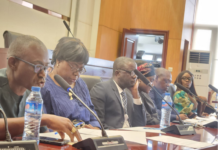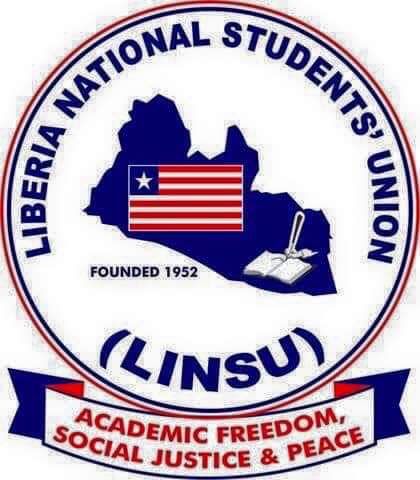The Liberia National student Union (LINSU) has strongly condemned the just ended National Economic Dialouge (NED) held at the Ministerial Complex in Congo Town Monrovia, while questioning the Pro-activeness of the Weah Commission, and Condemns LTA recent increase of Tariff on Telecommunications in the country.
In a strong worded press release on Monday September 10, 2019, LINSU says it sees the last week’s dialogue as a mere ‘showmanship’ intended to conglomerate members of Liberia’s political class while ordinary Liberian people languish in abject poverty.
The student institution disclosed that government of Liberia under the leadership of Ex-soccer player George Weah is yet to convince it as to whether the government really came to change the sad course of Liberia’s political history.
“All we have witnessed under this Weah’s political hegemony; is the persistent repetitious economic misappropriations of state’s resources like erstwhile regimes.”
“Under this very CDC led GOL that sees no logic in considering a comprehensive recommendation of professional Liberians under the auspices of the Center for Policy Action and Research, (CePAR) from its earlier stages, cannot be sincere about an economic dialogue which is only leading to the extravagance expenditures of taxpayers monies”, the group said in a statement.
It added that the government that boasts of a very strong Technical Economic Management Team has disregarded expert’s recommendations from well knowledgeable professionals for a ‘mere dialogue’ with a saturation of individuals with very little or no understanding on governance and Political Economics.
LINSU believes that the government of Liberia should’ve revisited the several recommendations sent to them by some of Liberia’s best brains through Civil Society Organizations.
The institution who also condemned the June 7th protest masterminded by a conglomeration of Liberian politicians under the umbrella of the Council of Patriots (COP), but believe that some of their Economic recommendations were genuine in aiding this Government revise this bad Economy.
Even though Liberian politicians like Mr. Alexander B. Cummings of the ANC had given some recommendations to help revise the Economic nightmare the people are confronted with.
The student body says GOL had many reasons to consider these recommendations in order to reserve state’s resources used for such a mere theater of “photoshoots” calling itself National Economic Dialogue.
LINSU believes that the National Economic Dialogue was a waste of state’s resources on the political class, which is absolutely anti pro poor and only increases the economic hardships our masses of people are confronted with.
“We therefore wish to recommend to the CDC led Government to put an end to these needless dialogues and bring on board the well professional individuals with the right technical knowledge to prioritize alleviating the growing economic agonies in the Liberian society under its stalwart-ship.”
The press release also said the inability of the WASH Commission in executing its statutory responsibilities, as it’s investigations from various schools in Monrovia and its environs has proven virtually no real impact from that arm of government.
LINSU at the same time condemn the recent action of The Liberia Telecommunication Authority (LTA) to unnecessarily increase tariffs on telecommunications in Liberia, thereby subsequently resulting to the end of the much talked about “Three days free calls promotion” and increase in other services by the GSM companies.
The release under the signatures of Isaac Muapoh secretary General and Mohammed Gandhi Kamara president said, it sees it as counterproductive decision by the LTA in the name of GOL’s revenue generation.
The student group encouraged GOL to alternatively invest in more practical agricultural initiatives which will subsequently create more jobs for struggling parents and generate more revenue than increment in tariffs on telecommunications in this 21th century where approximately 2.5millions Liberian students depend on modern technology to ease their academic tension through technological research.























